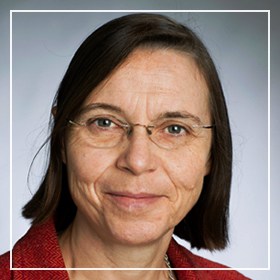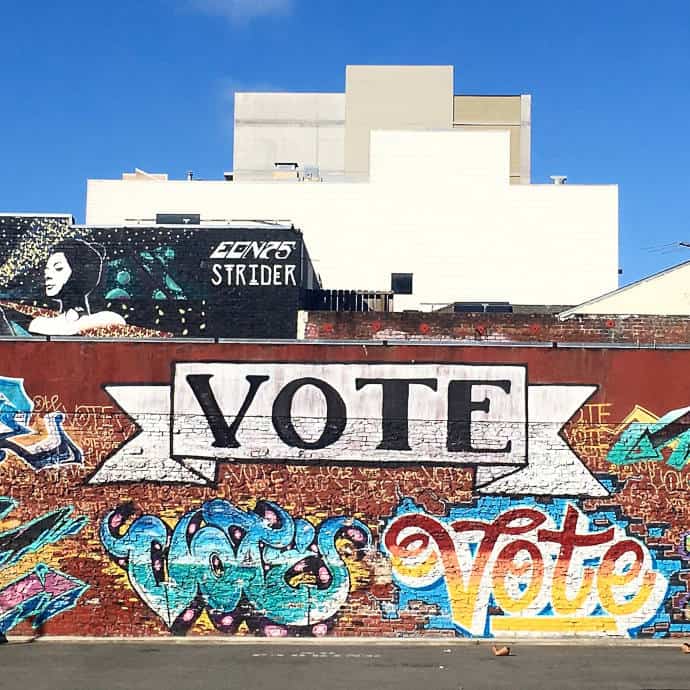 Allegra: You decided to run for the elections of the new EASA committee. Can you let EASA members know a little bit about your academic path and interests?
Allegra: You decided to run for the elections of the new EASA committee. Can you let EASA members know a little bit about your academic path and interests?
Sarah: My academic path was not planned. In practical terms, one thing that led me to anthropology was growing up as a foreigner. My parents are British and I grew up in Greece from the age of two. That experience taught me what it feels like to be treated as an outsider: my family was neither Greek nor Orthodox, and that mattered.
I studied anthropology in the UK as a joint degree with archaeology. After graduating, I was a freelance journalist for a while, having been a journalist and editor for my university’s student paper. Freelancing did not pay enough, so I took some secretarial temping jobs which, through a strange route, led to me becoming a paralegal and legal executive in a law firm in Texas for a while.
I returned to the UK to study for a PhD in the late 1980s. My PhD research was on feminist separatists in London. I had become interested in the politics of gender and sexuality, which was not very well developed in anthropology at the time. I chose this field site partly because I had never really understood the UK, which was supposed to be my country. I was also interested in poking around in the concepts that anthropology relied upon in order to study others. I thought that studying women who were critical of the self-evident truths of gender, sexuality and kinship within the UK might give me some insights into anthropology’s own underbelly, as it were.
Interestingly, a key thing I learned from that research was the importance of space, place and location. The concept of ‘safe space’ was crucial for feminist separatists; but more widely, the political, social, symbolic and economic forces involved in unequally shaping people’s spatial lives and experiences in London left a deep impression on me.
In all my subsequent work, this question of the inequalities of the spatial aspects of existence, and how that is marked by historically changing political conditions, has been at the heart of the work that I do. I worked first on borders in the Greek-Albanian border region and the Balkans more widely, and more recently on the wider concept of location in the Mediterranean region.
Allegra: What are your main motivations in joining the EASA Committee? Do you have some ‘insider’ knowledge of the association?
Sarah: I answered the first part of this question in the 150-word statement I submitted for my application, which I will quote here:
“I have been on the EASA Executive for two years as co-editor Social Anthropology/Anthropologie Sociale. I believe that the role of scholarly societies is becoming more important in today’s academic and political climate. Issues of open access, academic precarity, auditing regimes, attacks on academic freedom, and endless changes in university structures are affecting anthropology and how it is practised. EASA gives an independent voice to anthropologists linked to European universities on these issues, and provides a forum for listening to the wide diversity of its membership. Moreover, my past roles in academic auditing and administration, and my research focusing on the politics of borders and location, have convinced me that the voice of anthropologists beyond the academy is also increasingly needed. More than ever, I value the role of independent scholarly societies such as EASA in providing this.”
I will expand a bit on a few parts of this. I have served on many committees that assess things in academia, not only in the UK, but also in Greece and Finland. I have also acted as a head of anthropology both at the University of Manchester and the University of Helsinki (where I am now based); I have been a trustee for anthropological institutes and chair of external advisory boards. All of that gave me experience of the changes occurring in academia over the last 25 years. And while the UK, Greece and Finland are all quite different, there is no doubt that threats exist for two key principles that I believe are important in academia. The first is that academic freedom, while being a privilege, is also crucial to scholarship and must be defended. This requires us to do what we can to provide safe, secure, well-resourced and stable conditions in which researchers can do their work.
The second principle is that academic work is a collective effort: knowledge proceeds through freely sharing findings, ideas and research between a collectivity of scholars, who continually critically assess each other’s work. In this process, collective knowledge is more important than individual achievements. Currently, those principles are hard to maintain in many places, both because of threats to academic freedom and because of audit regimes that focus on individual, rather than collective, achievements. Scholarly associations such as EASA represent the collectivity of scholars, and are therefore in an excellent position to act to defend these principles.
On the question of ‘insider knowledge’: I have been on the Executive Committee for two years as co-editor of the journal, which means that I know something about how the organization works in administrative terms. That has not revealed anything to me that is either surprising or unusual. EASA basically follows its constitution.
Allegra: What are your views regarding Open Access publishing and ‘public anthropology’ more broadly?
Sarah: I am in favour of open access publishing, though not at any price. There is no such thing as cost-free publishing, so the questions should be: Who pays? Who is being paid? How much? And what strings are attached? If we demand completely free publishing, where does the money come from to pay the copy editors, proof readers, typesetters, printers, etc? There are no easy answers, but it is certain that anthropologists need a seat at the table in discussing the issues.
As editor of various journals, I have been closely following the rapidly changing situation. One big event in Europe currently is ‘Plan S,’ which has major implications for open access. Our voice needs to be heard there for sure.
In addition, the open access is no longer only about publishing; it also concerns research data, which are becoming increasingly monetised. EASA needs to keep a close eye on these issues over the next few years.
Public anthropology is a different issue. Open access is about making all scholarly work as widely available to as diverse an audience of scholars as possible. As anthropologists, we do need a space in which to share our scholarship with each other, including on obscure issues that are unlikely to interest anyone else. Public anthropology is about communicating beyond that group of scholars, and trying to ensure that anthropological knowledge receives a wider airing. In that, I think that EASA may have a role to play in making the kinds of knowledge that anthropology can generate both accessible and interesting for non-academic audiences. To date, there has been relatively little done to carry out the necessary process of translation, and more is needed.
Allegra: A new generation of anthropologists is experiencing a series of concerns related to their profession and their future. How do you see the role of EASA in this scenario?
Sarah: EASA has led the way in researching the current situation on precarity in the field. It is obvious that secure, permanent posts are now rare, and that early-career and even mid-career scholars now regularly move from one short contract to another, often from one country to another, making it almost impossible to settle, either in intellectual or personal terms. And in some countries and universities, the discipline’s very existence is being threatened. Again, these threats are not entirely new, and there is variation in how this works in different countries. We should not assume there is only one cause, or one solution. The key area where EASA can contribute is to provide a forum and a voice to represent its membership.
The association can also be on the lookout for emerging issues. For example, it is clear that there are increasing numbers of organizations that only have a digital existence online, and are not affiliated with any university or other body that could oversee them. EASA might be able to provide codes of conduct for such organizations. Another example: there has been relatively little attention paid to what happens at retirement after a precarious career; and issues that were of concern in the past, such as diversity and accessibility of anthropology as a subject to study and as a career have also taken a bit of a back seat in recent years.
I believe EASA is there to represent and serve its entire membership, and to take on board all of its members’ concerns, as well as to promote the interests of its members both within the academy and outside of it.
Featured image by wiredforlego (flickr, CC BY-NC 2.0)





